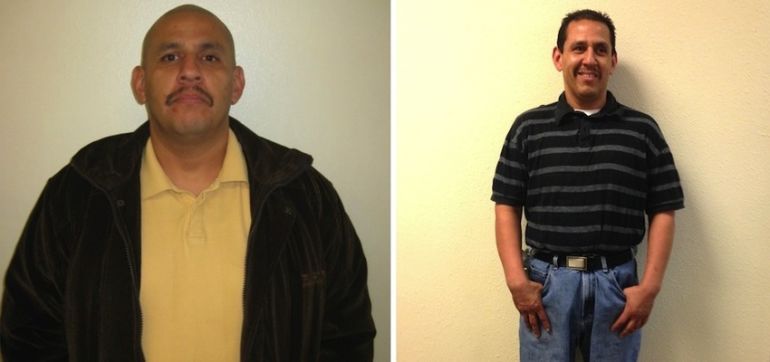Lose Weight > Common Sense To Lose Weight > Common Sense Article > Environmentalists In Books And Movies
Environmentalists In Books And Movies
Now comes Michael Crichton with "State of Confusion," a novel in which environmentalists are so farklempt over inaction on global warming that they start trying to get attention picture of antarctic ice shelf by causing some of the very serious problems they're warning against - for example, the collapse of the Antarctic ice shelf.
These destroy-the-world-to-save-it tactics are about as plausible as the plot in any other "catastrophe" book or movie, but Crichton decides to take himself seriously in "State of Confusion" by including charts and graphs - ostensibly as part of the protagonist's argument - as well as his own monograph on environmental fear-mongering. Harumph. Apparently Dr. Crichton's brain is so large that it allows him to be smarter and wiser than the hundreds of climate experts on the Intergovernmental Panel on Climate Change (IPCC), who overwhelmingly agree that global warming IS a major problem.
Oh, and also smarter than the super-brains at the National Academy of Sciences, who have confirmed the main conclusions offered by the IPCC. Other studies also run counter to Dr. C's assertions - the 2004 "Arctic Climate Impact Assessment" noted that the impact of global warming on the Arctic is actually turning out to be much greater than has been predicted previously in climate modeling, and that most of the problem is indeed attributable to the human generation of greenhouse gases from automobiles, power plants, and other sources. UndoIt has a detailed refuation of Crichton's assertions about global warming.
Michael Crichton is not the first author to write about environmentalist wackos out to destroy the planet (or at least out to destroy the "evil humans" on it). In "Rainbow Six," Tom Clancy picture of hemorrhagic fever viruses on microscope slide writes about environmental villains who are so upset about human overpopulation and the effect that we two-footed folk are having on the good green earth that they plot to release a deadly plague that will kill the vast majority of the earth's humans. Animals, of course, will be left unharmed, and the "good people" on the planet will get vaccines against the coming plague. Uh, yeah.
1) In the sci-fi book "Fallen Angels," the plot is based in a future United States where environmental extremists have outlawed most technology.
2) In the Faith Fairchild mystery "The Body in the Lighthouse," local environmentalists appear to be so anti-development that murder is an option. Similarly, in "Road Rage," Ruth Rendell features eco-baddies who are so committed to keeping a new highway from going through a fragile landscape that they're willing to take hostages and threaten murder.
3) And, finally, it's worth noting that Michael Crichton's "State of Fear" (released in late 2004) was not the first book to have environmental nut-jobs interested in seeing the ice in Antarctica slide into the sea and cause worldwide water damage. The concept was part of the central plot a year earlier in the 2003 novel "Big Ice," written by Christopher Bonn Jonnes.
In some cases, a writer's choice of putting environmentalists in the bad-guy role may indeed reflect the writer's true feeling that eco-fascists are trying to keep decent folk from enjoying the good life. In other cases, it is no doubt just a convenience for their plot.
But what about the overall demonization of environmentalists that is becoming increasingly prevalent in some political and media circles? Is it fair? We don't think so, and the assertions of environmental extremism are rarely based on facts.
Here's a way to think about environmentalists: They're like doctors who specialize in the earth, its ecosystems, cartoon image of a doctor examining the earth its species (including humans), and the biological relationships among them. The air, water, food, and shelter provided by the earth and the resources from her ecosystems are what keep life on the planet healthy, and environmentalists are the health-care specialists pursuing the goal of keeping the whole thing running right.
Healthy ecosystems are necessary for healthy people. It's a simple concept, but it is abstract enough that many people have difficulty integrating it into their own thinking; or, if they do accept the concept, have difficulty applying it in practice to their own behavior. Thus, you get corporations who put profits over pollution controls, consumers who put "more" over "safer," and politicians who put campaign contributions and their job security over honest leadership and doing what's best for the everyone.
Thus, when Dr. Environment comes along and cautions that some of the things we're doing are not so smart, it upsets the apple cart for these people and threatens their false concept of "how things are." Dr. Environment may say something like "overuse of unsafe chemicals is causing increased cases of cancer" or "uncontrolled forms of genetic engineering threaten to undermine the global food system." This is not much different than your family physician telling you that you're smoking too much, drinking too much, and eating too many Twinkies; that these things are bad for you; and that you really need to control yourself a little if you want to live far into the future.
Skeptics argue that there is no PROOF that global warming will cause the dire problems being predicted by environmentalists, only a bunch of theories and computer models and analytical results that the skeptics choose to discount. Similarly, you cannot say with complete assurance that drinking a half-gallon of rum every week will give you cirrhosis of the liver or cancer, but your doctor would likely predict it. The choice in both cases is the same:
1) We can do as we please now, without regard for the likely (but unproven) consequences; or
2) We can moderate our behavior in a way that reduces the risk to a reasonable level.
Waiting until a possible but unproven scenario is finally, disastrously proven true is rarely the wisest option. Some amount of preventative caution is a smart investment. It's always easier to fix a problem when it's small.
Fiction is a great source of entertainment, and it's no worse to make "environmental insanity" the motivation for a bad guy than it is to base his villainy on money, fame, or power. But it's crossing the line a little to write a work of fiction in a way that it comes off like a real scientific analysis.
For our part, we'll stick with Michael Crichton's other works of true fiction and leave the science of climate change to the people who have studied it most of their lives, not just for a few months in preparation for a novel. Unfortunately, according to these climate experts, the most noteworthy book in the next 100 years may turn out to be a work of non-fiction titled "A Century Ravaged By Global Warming - and the Skeptics Who Waited Too Long To Act."
Related Articles
-
Dietary Supplements and Multi-level Marketing: Why Do Companies Jump on the Bandwagon?
If you have done any kind of web search for multi-level marketing,
-
The Naked Truth About Weight Loss
Have you noticed that almost all weight loss methods fail miserably? M
-
Modify your lifestyle with 3 day plans
Obesity is often a developing health related concern all over the g
-
Belly Fat Exercise
Belly Fat Exercise: Fat accumulated in large quantities anywhere i
-
Have you read how to Burn the Fat Feed the Muscle yet
Burn the Fat Feed the Muscle is a well being e-book that what folks
-
Healthy Foods To Lose Obesity On A Slim Fast Diet Plan
Organic Diets and Healthy Foods to lose weight. Idealy all the foods
- DON'T MISS
- Heres The Skinny On Fat Burning Supplements
- Exercise and the Effective Ways to Burn Fat
- The Best Free Weight Loss Program For Natural Weight Loss
- Dangers of Using Diuretics for Weight Loss
- How to Set Realistic Fitness Goals
- The Final Ingredients For Fat Loss
- Tips to Lose Weight in 10 Days
- 3 extra ways to burn fat
- Gastric Pacemaker - An Option For You?
- Learn Your Way Around A Successful Weight Loss Plan




